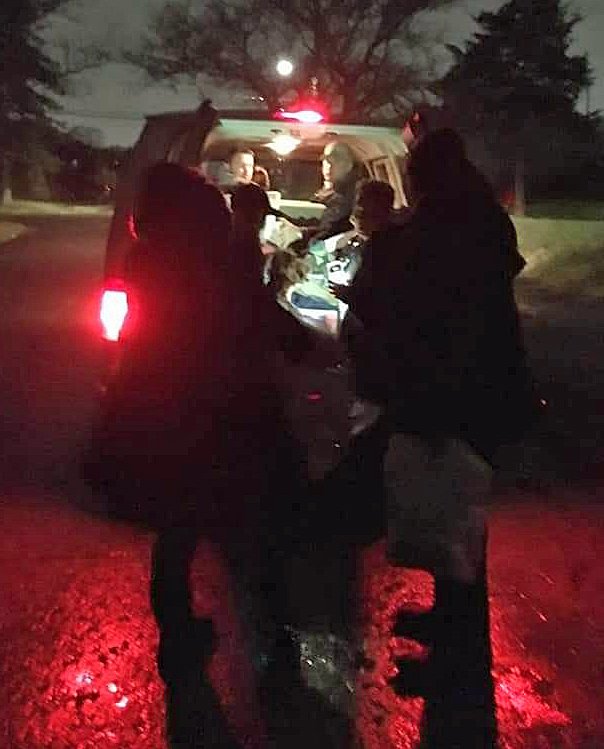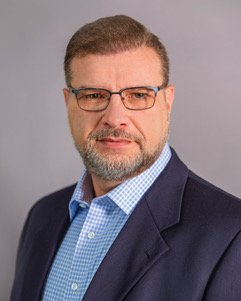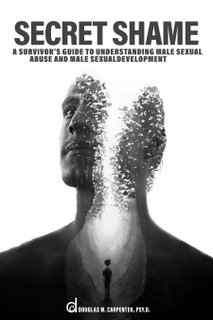Bring Your Broken Heart to Jesus
/This message is adapted from a message Dan Hitz shared in October 2025 while introducing some of the key concepts of the Living Waters program. This article introduces the chapter, “Becoming Responsive to the Fathers Love” and the practice of listening prayer. More recovery articles and testimonies from past Living Waters participants are available on the Reconciliation Ministries website at https://recmin.org/newsletter-archives.
God is love.
1 John 4:16
Most of us would say that we fully believe that God loves us, and we would be quick to tell anyone else that God loves them. Yet, if we’re honest, there are times when we may feel like God is barely putting up with us. It’s amazing how we can fully believe something in our brains, but then we doubt it in our hearts. Why is that? I like to explain that we feel the emotions from what we believe in our hearts, even when our brains know the truth. We might be able to teach an excellent Sunday school lesson on God’s love, but when we go outside that class and something annoying happens to us, we often feel like God’s messing with us because He really doesn’t like us. Why the doubt?
Psalm 27:10 NLT reads, “Even if my father and mother abandon me, the Lord will hold me close.” Sometimes we need to look at our relationships with our earthly parents to understand how we see our relationship with God the Father. We’re not here to bring shame on our parents or blame them for all the problems in our lives, but all of us had parents who were imperfect humans. Some of us had pretty good parents who raised us without causing significant emotional pain. Others have had very broken parents who inflicted a lot of emotional pain. Sometimes good parents inflict pain by accident. Even if your parents didn’t cause any significant wounds, all of us are wounded by someone at some point in our lives. If those people were significant authority figures whom we should have been able to trust, those wounds can go pretty deep. Sometimes we think that God will treat us just like our parents did. If we had good parents, we generally think that God is good. If we had mean or harsh parents, we may think that God is mean and harsh. If our parents were unavailable, we might think that God really doesn’t care about us. It’s hard to bring our broken hearts to someone we’re afraid of.
As I was growing up, my mother was severely emotionally broken. She remained that way for the rest of her life. She did some very bad things to me that cut deeply into my soul. Life was confusing. Sometimes Mom would be loving and kind. Other times she would be delusional, mean, and downright evil. It wounded me deeply and broke my heart.
My father was a kind man, but he worked a lot. He wasn’t around when my mother did bad things. When he was home, I didn’t feel like he had a lot of time for me. I felt unimportant. One significant moment that shaped my relationship with him came when I was very young. I remember watching him shave. Little boys think it’s amazing to watch their daddies shave. I was excited and asking him a million questions. All of a sudden, he looked at me and said, “Would you be quiet and stop asking me so many questions before I turn into a monster again.” I got scared. If I kept talking to him he might turn in to a monster again? Again?!!! That means he did it before. I didn’t know what would happen if the only safe parent in the house turned into a monster, but it would be bad. It broke my heart. I wanted to protect myself. I turned my heart off towards my dad that day. When we turn our hearts off towards an important person in our lives, we end up turning our hearts off towards other people that remind us of them. I grew up having a hard time opening my heart up to other male authority figures like teachers, bosses, and even pastors.
When Jesus was reading from the book of Isaiah in Luke 4:18, He said that He was sent to “heal the brokenhearted” [NKJV]. In the original language, that phrase refers to sharp pieces of glass like a broken mirror. As we are growing up and get wounded, our hearts can be broken into many pieces, just like a mirror. How does Jesus heal our hearts? Where do we even start that process? In Matthew 11:28-30 NLT, Jesus says, “Come to me, all you who are weary and carry heavy burdens, and I will give you rest.” That’s where we start. We bring the broken pieces of our heart to Jesus and ask Him for help. We tell Him about the wounds that are causing us pain. We tell Him the things we believe about ourselves from those experiences. We even talk to Him about the things we might believe about Him because of those experiences. That might be pretty frightening. What if we have a hard time trusting Him? What if we’re mad at Him? We still go to Him. The Lord spoke through the prophet Isaiah and said, “’Come now, let’s settle this,’ says the Lord, ‘Though your sins are like scarlet, I will make them as white as snow. Though they are red like crimson, I will make them as white as wool.’” [Isaiah 1:18 NLT] I like this invitation. Settling the matter implies there is a conflict. The Lord isn’t upset at us for not agreeing with Him, or even being mad at Him. He invites us to talk with Him and work things out. He even says that He will help us overcome sin as we talk things over with Him. He is giving us an invitation to share our hearts and hear His perspective. He is giving us an invitation to receive His peace as we bring one broken piece of our hearts to Him at a time, and wait quietly for His response.
I brought the piece of my heart that was broken when my father told me to stop bothering him while he was shaving. As I shared this wound with the Lord, He helped me see that my father’s anger was not about me. He was overwhelmed by the problems with my mother. The Lord helped me understand that my father wanted to protect me when he told me to stop bothering him because he was afraid he would lose control and start yelling at me. He was an imperfect father trying to protect me, and accidentally wounded me in the process. I was able to give the pain of that incident to the Lord and forgive my dad. I also had to pray and repent for shutting my heart off to my dad and other authority figures like him. As I heard truth from the Lord and repented of my own sinful reaction, more of my heart came back to life. I felt more peace.
Bringing the broken pieces of our hearts to the Lord is a lifelong process. As we come to Him, He heals our wounds and carries our pain. He shows us the lies in our hearts that we believe about ourselves that cause us pain. As He speaks truth to our hearts, more of the pieces of our hearts come back to life and our broken hearts are put back together.
It’s common to believe lies about ourselves when we experience trauma. Some of the lies I believed included that the bad things were my fault. The Lord showed me that my parents were supposed to protect, encourage, and keep me safe. Parents are never supposed to do bad things to their children under any circumstances. Parents are supposed to protect their children. Another lie was that I enjoyed the bad things that happen to me because my body felt pleasure. The Lord showed me that I was actually disgusted in my heart with what was happening. I wasn’t allowed to resist what was happening or I would be hurt. Our private parts don’t know if what is happening is welcome or unwelcome. Our nerve endings simply respond to what is happening. I also believed that it isn’t safe to trust anyone. If my mom wasn’t safe, I figured nobody was. The Lord showed me that I am older now and He can help me learn to trust safe people and He can protect me from unsafe people.
As we bring the broken pieces of our hearts to Jesus, He heals them and puts our hearts back together. We find out who we really are as redeemed sons and daughters of God the Father. When we know who the Lord identifies us as, it is easier to live according to our true identity.
What parts of your heart are broken? I encourage you to sit quietly in prayer and ask the Lord to help you bring each broken piece of your heart to Him. Let yourself feel the pain that is still in your heart and recognize what you believe about yourself from that experience. Offer that pain and the lies to Jesus. Sit quietly and wait for His response. As you do, He will lift the pain off of you, speak truth that will set you free, and put your heart back together. He will bring you peace and show you who you truly are as a dearly beloved son or daughter. He loves you. You have great value.
Photo provided by www.unsplash.com. © 2025 Reconciliation Ministries of Michigan, Inc. This article may be reproduced and distributed as long as no fee is charged and credit is given.



















